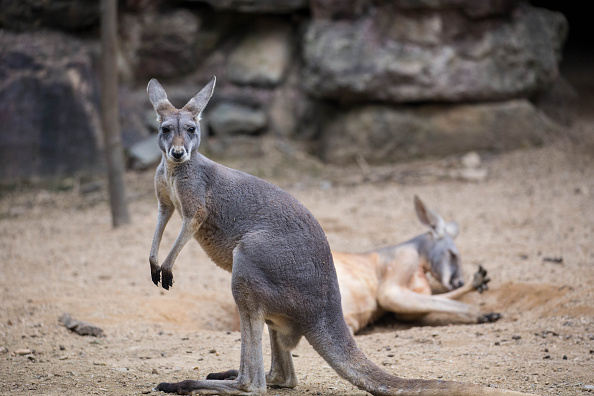Kangaroo farts aren t as low methane and eco friendly as once thought kangaroos produce about the same amount of methane as animals similar in size these greenhouse gases contribute to global warming

Kangaroo Farts and their Impact on Global Warming

Kangaroos are fascinating creatures that roam the vast landscapes of Australia. Known for their unique hopping ability and distinct appearance, kangaroos have become iconic symbols of the continent. However, recent scientific discoveries have shattered one common misconception about these marsupials – their farts.
For a long time, it was believed that kangaroo farts were relatively low in methane emissions, making these animals more environmentally friendly compared to other livestock. However, new research has revealed that kangaroos may not be as climate-conscious as previously thought.

Methane, a greenhouse gas significantly contributing to global warming, is produced by various animals during the process of digestion. Kangaroos possess a unique digestive system with bacteria that efficiently converts fibrous plant material into energy. It was this specialization that led researchers to believe that kangaroos produced lower amounts of methane compared to animals of similar size, such as cows or sheep.
However, recent scientific studies have shown that kangaroos produce around the same amount of methane as their ruminant counterparts. These findings challenge the previously held notion that kangaroos are eco-friendly creatures with minimal contributions to greenhouse gas emissions.
The research conducted by Australia’s University of Wollongong focused on measuring methane production from kangaroos. The scientists collected breath samples and found that the methane levels released by kangaroos were similar to those produced by cows and sheep. These results indicate that kangaroos may not have the same advantage in mitigating climate change as previously believed.
While the discovery may come as a surprise to many, it is essential to consider the broader context. Kangaroos are native to the Australian ecosystem and have evolved to coexist with the environment. They play a vital role in seed dispersal and plant regeneration, contributing to the overall stability of their habitats.
The fact that kangaroos produce methane does not make them villains in the fight against climate change. Rather, it highlights the complexity of nature and the importance of understanding the various factors at play. By gaining a more comprehensive understanding of kangaroos’ ecological role, we can make informed decisions about conservation and sustainability.
In conclusion, the belief that kangaroo farts were low in methane emissions has been debunked by recent research. These marsupials produce approximately the same amount of methane as animals of similar size, contributing to greenhouse gas emissions and global warming. However, it is crucial to view this scientific discovery within a broader perspective, considering the holistic role that kangaroos play in their native ecosystem.
Source: US News
Related Posts
Quick Links
Legal Stuff

